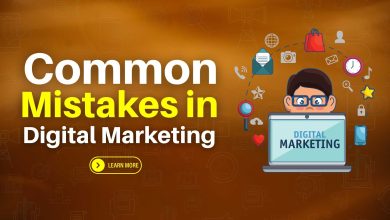Role of Social Medias in Real Life – Download Free eBook
The advent of social media has brought about a revolution in how people communicate with one another. Social media platforms like Facebook, Twitter, Instagram, and YouTube have become an integral part of our daily lives. These platforms have not only transformed the way we connect and communicate with others, but they have also changed the way we consume information, make decisions, and engage in public discourse. In this essay, we will explore the role of social media in real life, and examine its impact on various aspects of our lives.
One of the most significant roles that social media plays in real life is that of connecting people. Social media has made it possible for people to connect with others from around the world, irrespective of geographical boundaries. Whether it’s through online communities, interest groups, or messaging apps, social media has made it possible for people to find and connect with others who share their interests and passions. This has not only led to the formation of new friendships and relationships but has also helped in promoting cultural exchange and understanding.
Another important role that social media plays is that of information dissemination. Social media platforms have become one of the primary sources of news and information for many people. With the rise of citizen journalism and the democratization of information, social media has made it possible for anyone to share their views and opinions on a wide range of topics. This has led to the emergence of new voices and perspectives, which were previously marginalized or ignored by traditional media outlets.
However, the role of social media in information dissemination has also led to some negative consequences. The spread of fake news and misinformation has become a major concern, with many people falling prey to clickbait headlines and sensationalist content. This has led to a loss of trust in the media and has made it difficult for people to distinguish between reliable and unreliable sources of information.
Social media also plays a significant role in shaping public opinion and influencing decision-making processes. Politicians and public figures use social media to communicate with their followers, and to shape public opinion on various issues. Social media campaigns have been used to mobilize support for political causes, and to influence election outcomes. However, this has also led to the rise of echo chambers, where people only engage with views and opinions that align with their own, and where dissenting voices are ignored or dismissed.
Social media has also changed the way we consume and interact with media content. With the rise of streaming platforms like Netflix and YouTube, people can now access a vast library of content on-demand. Social media platforms have also become a primary source of entertainment, with people spending hours scrolling through their newsfeeds, watching videos, and browsing memes. This has led to a rise in social media addiction, with many people struggling to disconnect from their devices and engage in real-world activities.
Finally, social media has had a significant impact on the way businesses and brands operate. With the rise of influencer marketing and social media advertising, companies can now reach their target audiences more effectively than ever before. Social media platforms have become a key tool for businesses to build their brand identity, engage with their customers, and drive sales. However, this has also led to concerns around privacy and data protection, with many people feeling uneasy about the amount of personal information that companies collect and use for targeted advertising.
In conclusion, social media has become an integral part of our daily lives, and its impact is felt across various aspects of society. While social media has brought about many positive changes, such as facilitating communication and promoting cultural exchange, it has also led to some negative consequences, such as the spread of fake news and the rise of social media addiction. As social media continues to evolve, it is important for us to be aware of its impact and to use it responsibly, both as individuals and as a society.
Is social media good for our lives?
The question of whether social media is good for our lives is a complex one, and there is no simple answer. On the one hand, social media has brought about many positive changes, such as facilitating communication, promoting cultural exchange, and connecting people across geographical boundaries. Social media has also given people a platform to share their views and opinions, which can help to promote democracy and social justice.
On the other hand, social media has also had some negative consequences. The spread of fake news and misinformation on social media platforms has led to a loss of trust in traditional media outlets and has made it difficult for people to distinguish between reliable and unreliable sources of information. Social media addiction has become a growing concern, with many people struggling to disconnect from their devices and engage in real-world activities. The rise of cyberbullying and online harassment has also had a significant impact on mental health, particularly among young people.
The impact of social media on our lives is complex, and it can vary depending on how we use it. When used responsibly, social media can be a powerful tool for connecting with others, sharing information, and building relationships. However, when used irresponsibly or excessively, social media can have negative consequences for our mental and emotional wellbeing.
It is important to be aware of the potential risks associated with social media use and to take steps to mitigate these risks. This can include setting limits on social media use, being selective about the content we consume, and being mindful of the impact that social media has on our mental and emotional wellbeing. It is also important for social media platforms to take steps to address issues like fake news, cyberbullying, and privacy concerns, and to create a safer and more responsible online environment for users.
In summary, social media has both positive and negative impacts on our lives, and it is up to us to use it responsibly and mindfully. By taking steps to mitigate the risks associated with social media use and promoting responsible online behavior, we can ensure that social media continues to be a valuable tool for connecting with others, sharing information, and building relationships.
Pros and cons of social medias in real life
Pros:
- Communication: Social media has made it possible for people to connect with others from around the world, irrespective of geographical boundaries. Social media platforms have become a convenient and efficient tool for communication, allowing people to stay in touch with friends and family, collaborate with colleagues, and network with like-minded individuals.
- Information sharing: Social media has made it possible for anyone to share their views and opinions on a wide range of topics. This has led to the emergence of new voices and perspectives, which were previously marginalized or ignored by traditional media outlets. Social media has also become a primary source of news and information for many people, with citizen journalism and the democratization of information allowing people to stay informed and engaged with the world around them.
- Entertainment: Social media platforms have become a primary source of entertainment, with people spending hours scrolling through their newsfeeds, watching videos, and browsing memes. This has led to the emergence of new forms of content, such as viral challenges, influencer marketing, and live-streamed events, which have captured the attention of millions of people around the world.
- Business opportunities: Social media has transformed the way businesses and brands operate, allowing companies to build their brand identity, engage with their customers, and drive sales. Social media platforms have become a key tool for businesses to connect with their target audiences, increase brand awareness, and build customer loyalty.
Cons:
- Cyberbullying and harassment: The rise of social media has also led to the rise of cyberbullying and online harassment, particularly among young people. The anonymity of the internet can make it easier for people to bully or harass others, leading to significant mental and emotional distress.
- Addiction: Social media addiction has become a growing concern, with many people struggling to disconnect from their devices and engage in real-world activities. This can lead to a range of negative consequences, including sleep disturbances, social isolation, and decreased productivity.
- Spread of misinformation: Social media platforms have also been criticized for their role in the spread of fake news and misinformation. The ease with which information can be shared on social media has made it possible for false or misleading information to go viral, leading to a loss of trust in traditional media outlets and public institutions.
- Privacy concerns: Social media platforms collect vast amounts of personal data from their users, which can be used for targeted advertising and other purposes. This has raised concerns around privacy and data protection, with many people feeling uneasy about the amount of personal information that companies collect and use.
In conclusion, social media has both positive and negative impacts on our lives. While social media can facilitate communication, information sharing, and entertainment, it can also lead to cyberbullying, addiction, misinformation, and privacy concerns. It is important to be aware of the potential risks associated with social media use and to take steps to mitigate these risks, both as individuals and as a society.
Download free Social Media Addictions eBook




